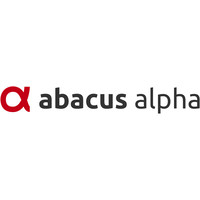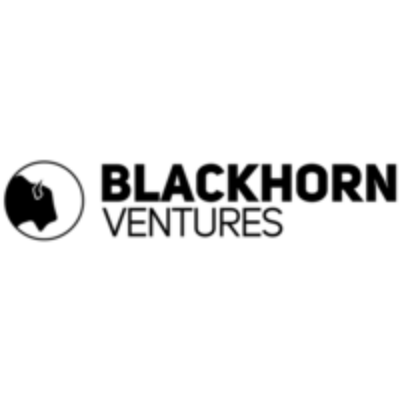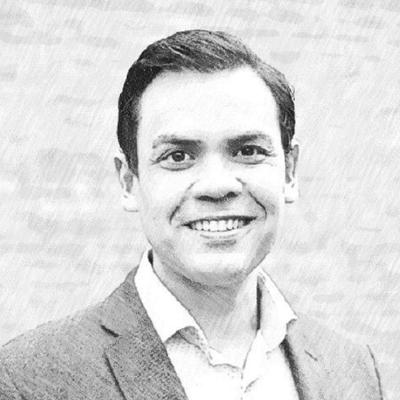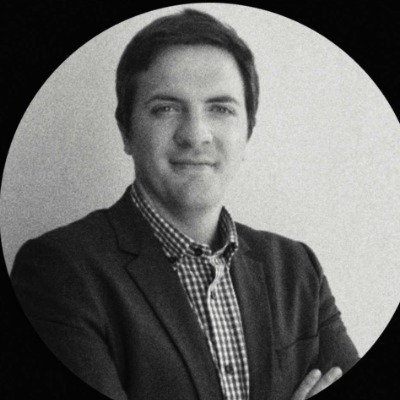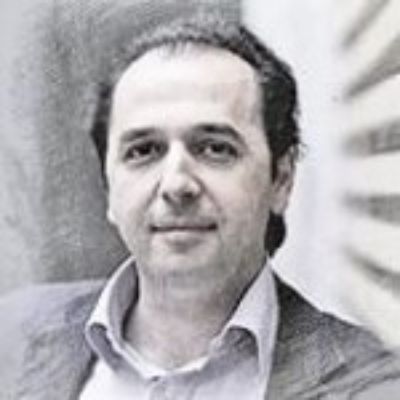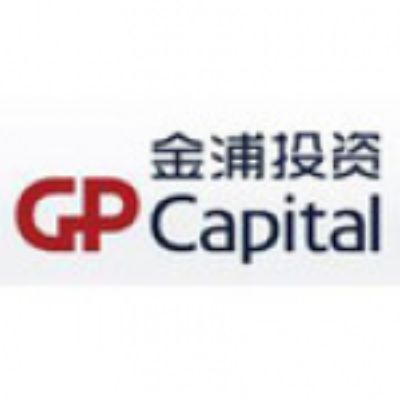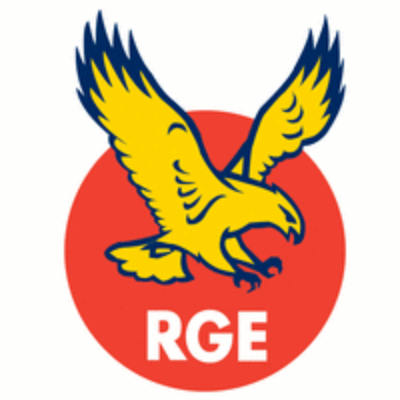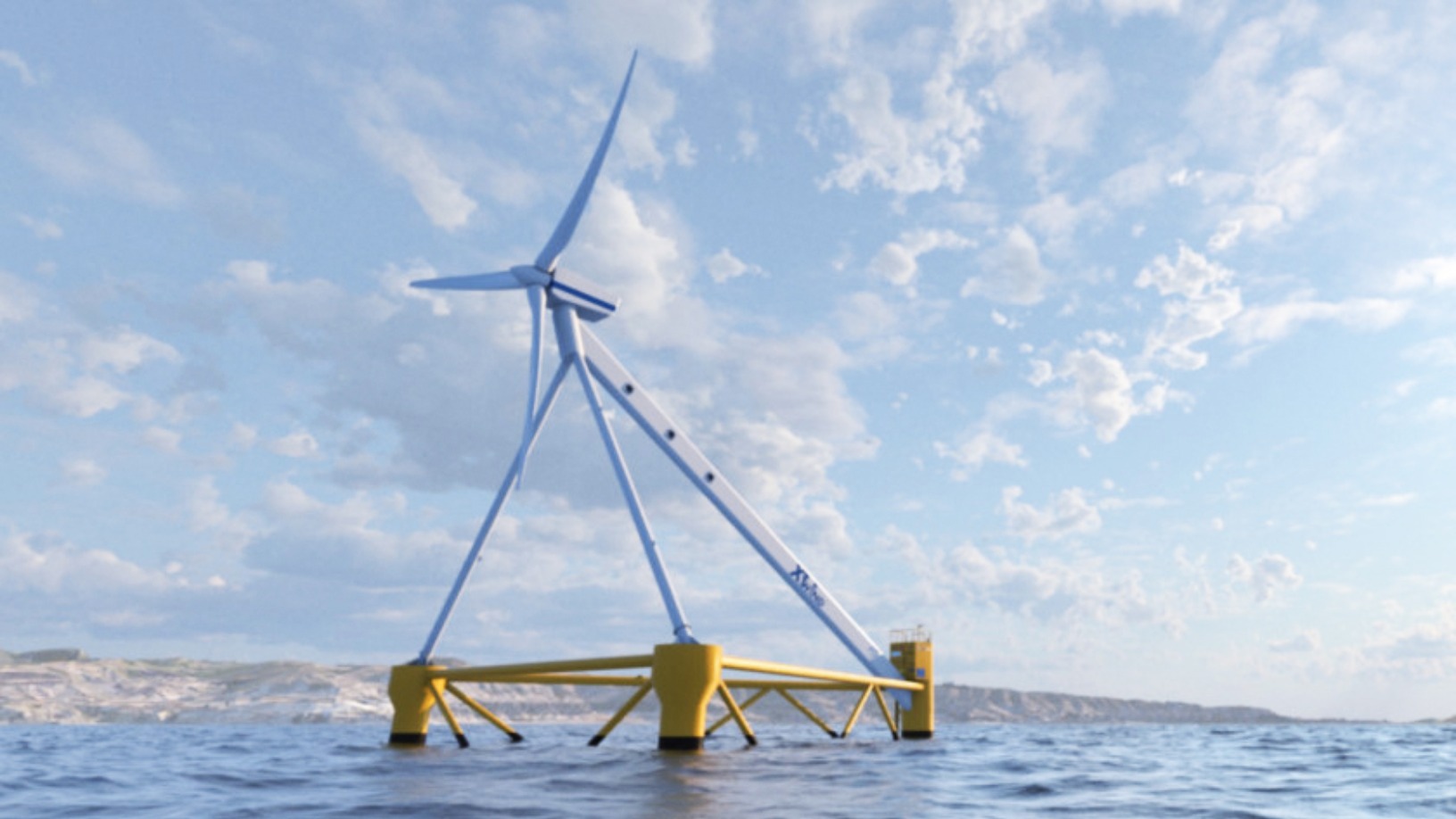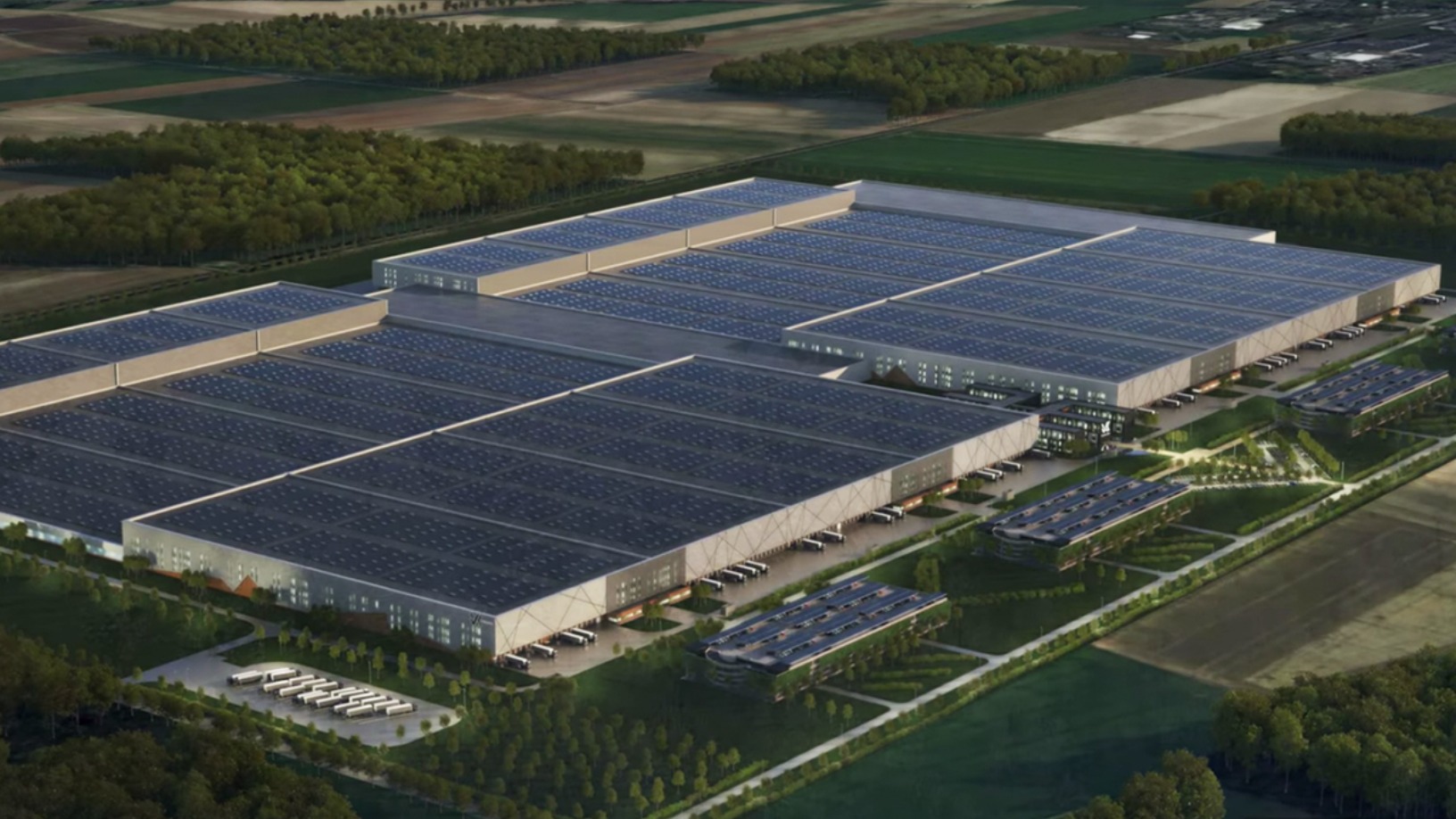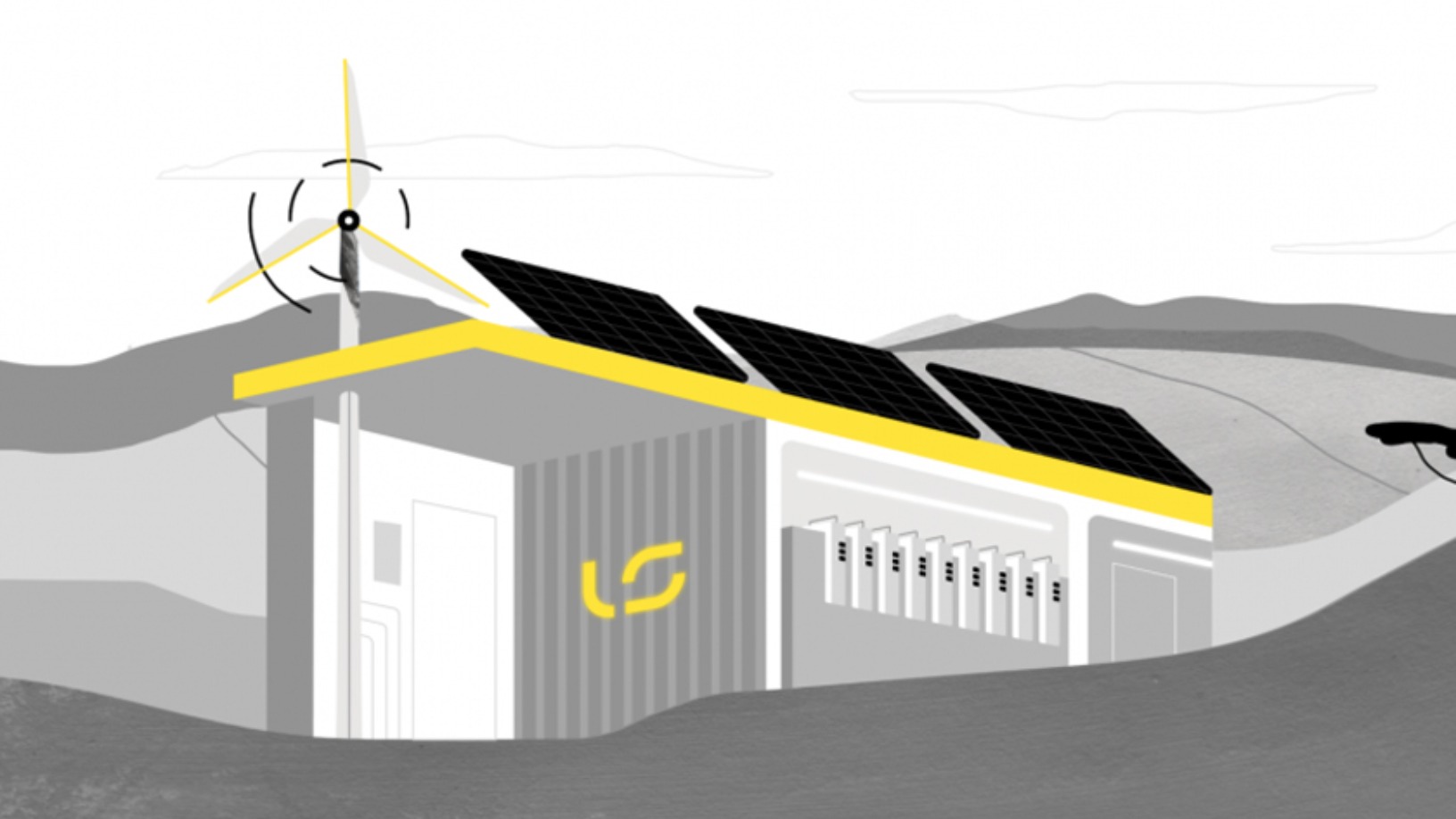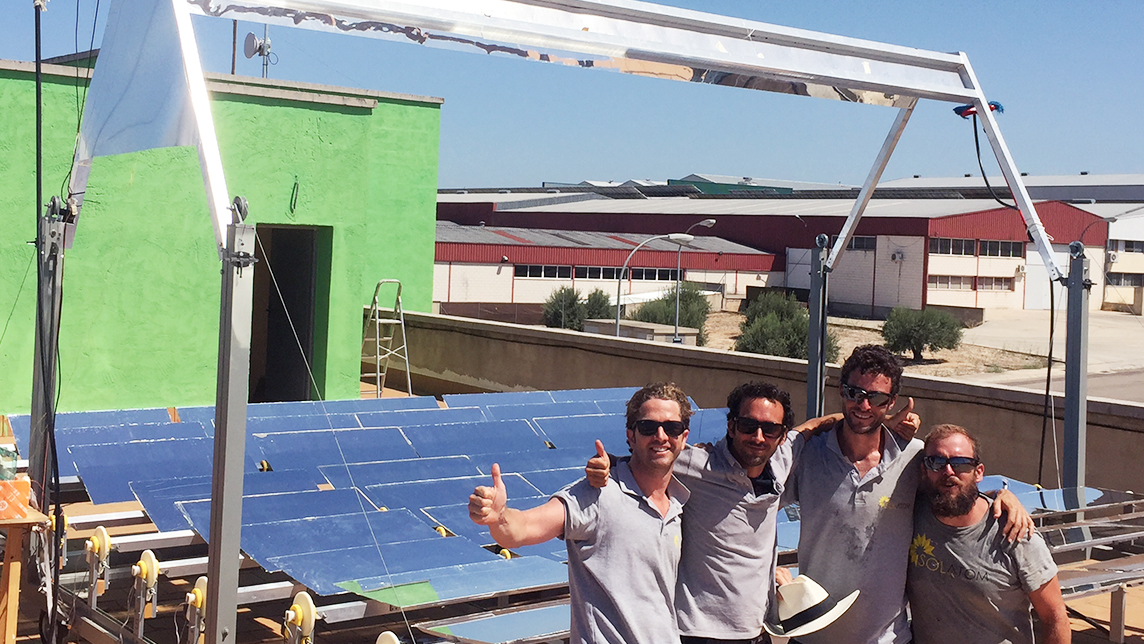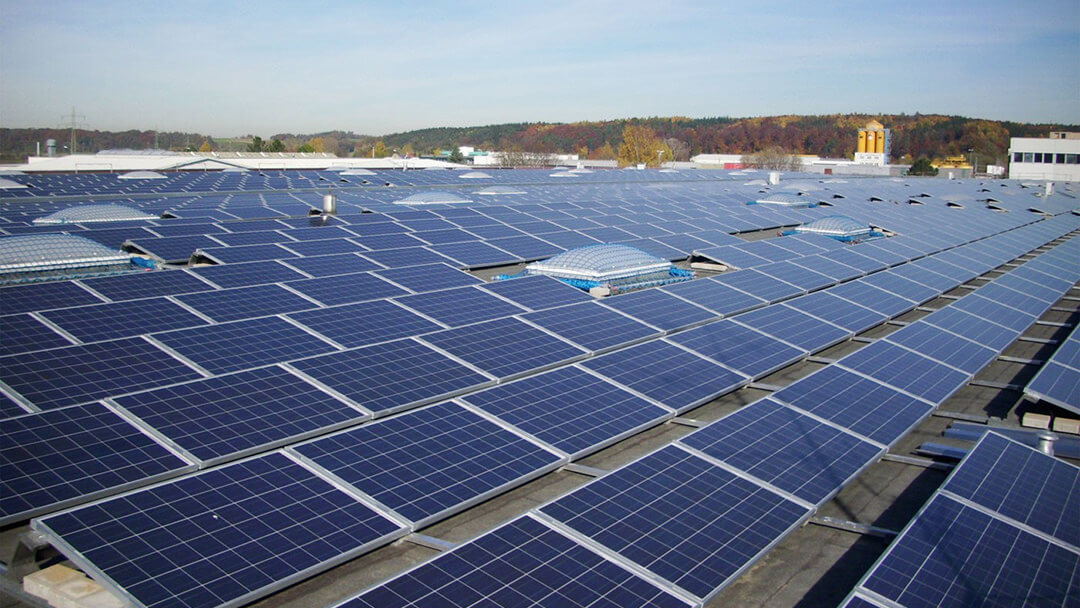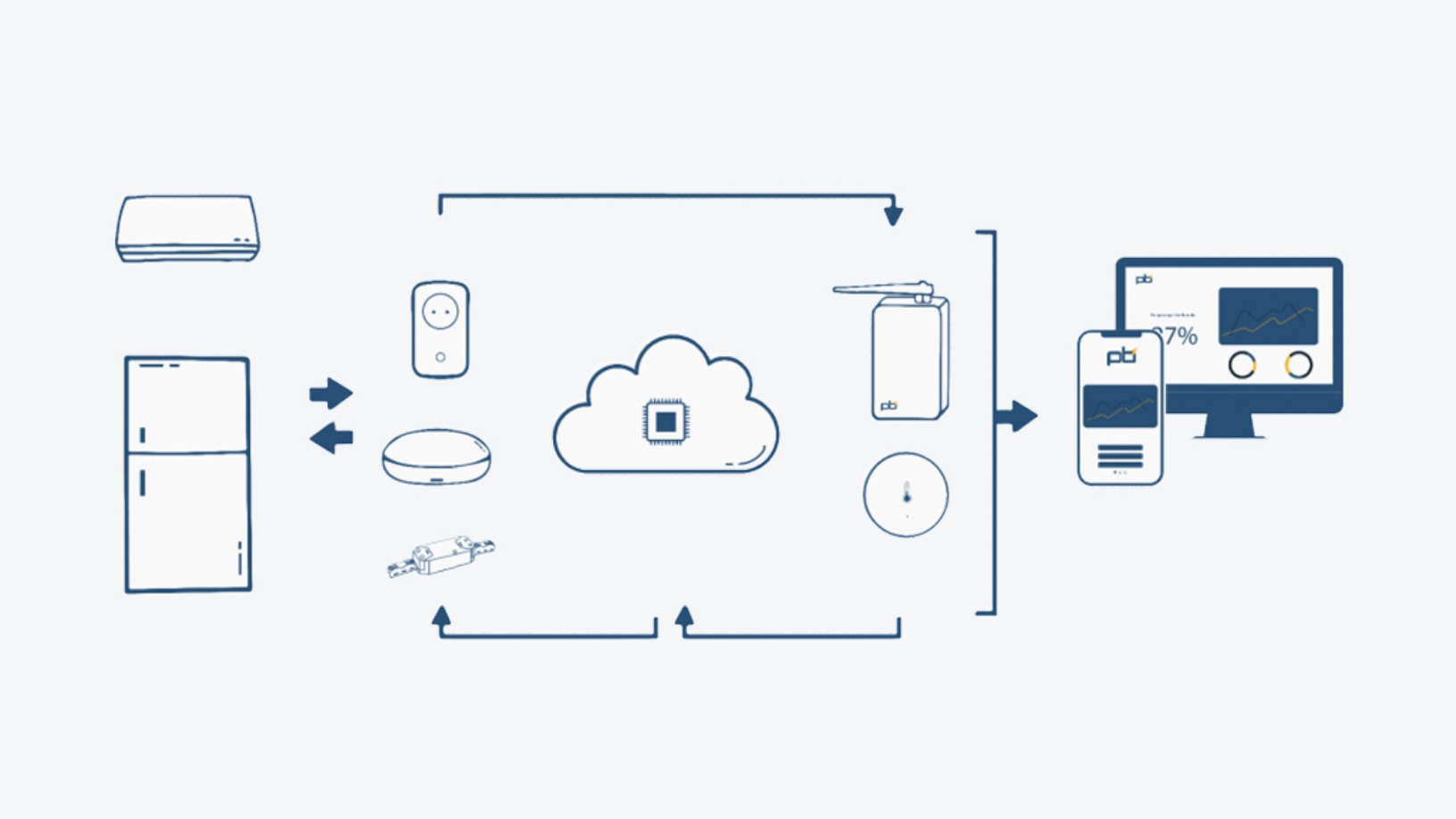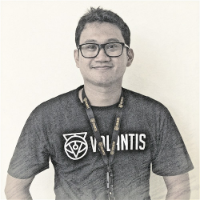Offshore energy
-
DATABASE (155)
-
ARTICLES (132)
Founded in 2006, Abacus Alpha is a German VC that has invested in water or industry service companies instead of the typical tech startups. Based in Frankenthal, Rheinland-Pfalz, it is the investment arm of German multinational, KSB Group, a pump and valve producer. Its most recent investments were the 2019 undisclosed seed funding of industrial tech company Applied Nano Services, the 2018 undisclosed seed round in desalination innovator Salinova and the 2017 undisclosed seed investment in AddVolt, pioneer of renewable energy generation technology to replace diesel engines for cold chain transport.
Founded in 2006, Abacus Alpha is a German VC that has invested in water or industry service companies instead of the typical tech startups. Based in Frankenthal, Rheinland-Pfalz, it is the investment arm of German multinational, KSB Group, a pump and valve producer. Its most recent investments were the 2019 undisclosed seed funding of industrial tech company Applied Nano Services, the 2018 undisclosed seed round in desalination innovator Salinova and the 2017 undisclosed seed investment in AddVolt, pioneer of renewable energy generation technology to replace diesel engines for cold chain transport.
Founded in 2016 in Boulder, Colorado, Blackhorn specializes in startup investment in potential game-changers for industry, including construction – its top priority for investment – manufacturing, healthcare, agriculture, transportation, water and energy. It has no geographical bias and currently has 48 companies in its portfolio with two acquisitions to date. Its most recent investments include in the undisclosed $8m round of US medtech Cytovale in January 2021 and in the $20.5m December 2020 Series A round of employees compensation fintech Foresight Risk, based in Silicon Valley.
Founded in 2016 in Boulder, Colorado, Blackhorn specializes in startup investment in potential game-changers for industry, including construction – its top priority for investment – manufacturing, healthcare, agriculture, transportation, water and energy. It has no geographical bias and currently has 48 companies in its portfolio with two acquisitions to date. Its most recent investments include in the undisclosed $8m round of US medtech Cytovale in January 2021 and in the $20.5m December 2020 Series A round of employees compensation fintech Foresight Risk, based in Silicon Valley.
Established in 1996, SBI Investment is a venture capital firm that focuses on growth sectors such as information technology, biotechnology, life science, mobile, environment and energy. The VC arm of the SBI Group is developed to quickly find new, emerging technologies and investing in those technologies to further the development of the group. SBI Group then introduces the new technologies to existing businesses in order to help them stay ahead in the market, as well as to revitalize local industries in Japan, particularly in the financial and banking sectors.
Established in 1996, SBI Investment is a venture capital firm that focuses on growth sectors such as information technology, biotechnology, life science, mobile, environment and energy. The VC arm of the SBI Group is developed to quickly find new, emerging technologies and investing in those technologies to further the development of the group. SBI Group then introduces the new technologies to existing businesses in order to help them stay ahead in the market, as well as to revitalize local industries in Japan, particularly in the financial and banking sectors.
Capricorn Investment Group is one of the world’s largest mission-aligned investment companies, managing more than $6bn in multi-asset class portfolios for families, foundations and institutional investors. Notably, it manages the investment portfolio of Jeff Skoll, the first President of eBay, and his charitable organization. The company has offices in Silicon Valley and New York. It has invested in 63 companies to date, many aimed at tackling key challenges facing our world today. It has managed 14 exits to date, including Tesla. Its main focus is on technology and sustainability, with a particular interest in deeptech, aerospace, transport, agtech, healthcare and energy. The firm’s most recent disclosed investments were in May 2021, via participation in the $100m Series B round of Canadian quantum computing startup Xanadu and the $28m Series B round of US geothermal tech company Fervo Energy.
Capricorn Investment Group is one of the world’s largest mission-aligned investment companies, managing more than $6bn in multi-asset class portfolios for families, foundations and institutional investors. Notably, it manages the investment portfolio of Jeff Skoll, the first President of eBay, and his charitable organization. The company has offices in Silicon Valley and New York. It has invested in 63 companies to date, many aimed at tackling key challenges facing our world today. It has managed 14 exits to date, including Tesla. Its main focus is on technology and sustainability, with a particular interest in deeptech, aerospace, transport, agtech, healthcare and energy. The firm’s most recent disclosed investments were in May 2021, via participation in the $100m Series B round of Canadian quantum computing startup Xanadu and the $28m Series B round of US geothermal tech company Fervo Energy.
COO and co-founder of Modulous Tech
Christopher Mortensen is co-founder and Chief Operating Officer at UK-based Modulous, the first end-to-end generative design and delivery solution for affordable, sustainable and modulized housing, where he has worked since 2018. Before that, he worked for two years as technical director at engineering, sustainability and energy consultancy Hydrock. Previously, he was at Atelier Ten for ten years working as a senior engineer, an environmental design consultant, a building services engineer and a lighting designer. Mortensen’s previous posts were all in his native US: as a mechanical project engineer at Oregon-based Interface Engineering 2004-8, as a mechanical designer at Philadelphia-based Associated Engineering Consultants, and as an assistant hut master at the Appalachian Mountain Club. He holds an Executive MBA from Cass Business School in London and also studied Blockchain in 2018 at the University of Oxford’s Said Business School Mortensen is a keen public speaker and, in 2017, gave a TedX talk on ’Beyond Sustainable Design.’
Christopher Mortensen is co-founder and Chief Operating Officer at UK-based Modulous, the first end-to-end generative design and delivery solution for affordable, sustainable and modulized housing, where he has worked since 2018. Before that, he worked for two years as technical director at engineering, sustainability and energy consultancy Hydrock. Previously, he was at Atelier Ten for ten years working as a senior engineer, an environmental design consultant, a building services engineer and a lighting designer. Mortensen’s previous posts were all in his native US: as a mechanical project engineer at Oregon-based Interface Engineering 2004-8, as a mechanical designer at Philadelphia-based Associated Engineering Consultants, and as an assistant hut master at the Appalachian Mountain Club. He holds an Executive MBA from Cass Business School in London and also studied Blockchain in 2018 at the University of Oxford’s Said Business School Mortensen is a keen public speaker and, in 2017, gave a TedX talk on ’Beyond Sustainable Design.’
CEO and co-founder of Bygen
Lewis Dunnigan is a researcher turned entrepreneur based in Australia. After earning a master’s degree in Chemical Engineering and working as a researcher at the University of Edinburgh in the UK, Dunnigan returned to Australia. He had a brief stint as a visiting researcher and earned his PhD in Chemical Engineering at the University of Adelaide.During his PhD, Dunnigan was a part of Philip Kwong’s research laboratory. His PhD project involved developing a system to generate activated charcoal and renewable energy from biomass. In 2017, Dunnigan, Kwong, and fellow PhD student Ben Morton decided to commercialize this technology and established a spin-off company called Bygen, which developed a low-cost, novel way to make activated carbon more sustainably using various forms of agricultural waste. Dunnigan is now the CEO of Bygen.
Lewis Dunnigan is a researcher turned entrepreneur based in Australia. After earning a master’s degree in Chemical Engineering and working as a researcher at the University of Edinburgh in the UK, Dunnigan returned to Australia. He had a brief stint as a visiting researcher and earned his PhD in Chemical Engineering at the University of Adelaide.During his PhD, Dunnigan was a part of Philip Kwong’s research laboratory. His PhD project involved developing a system to generate activated charcoal and renewable energy from biomass. In 2017, Dunnigan, Kwong, and fellow PhD student Ben Morton decided to commercialize this technology and established a spin-off company called Bygen, which developed a low-cost, novel way to make activated carbon more sustainably using various forms of agricultural waste. Dunnigan is now the CEO of Bygen.
Veteran Portuguese investor Diamantino Costa, aka Dino, is the founder and managing partner of DCVentures and Ganexa Capital. He is also the chairman and CEO of Intelligent Sensing Anywhere (ISA), an IoT firm in energy, oil and gas. He is a former chairman of the Portuguese Aerospace Industry Association (PEMAS).Costa has a master’s in Computer Science from the University of Coimbra. He co-founded and exited Critical Software, one of Portugal’s first startups. The business application development company has its roots at the University of Coimbra and secured NASA as its first client.
Veteran Portuguese investor Diamantino Costa, aka Dino, is the founder and managing partner of DCVentures and Ganexa Capital. He is also the chairman and CEO of Intelligent Sensing Anywhere (ISA), an IoT firm in energy, oil and gas. He is a former chairman of the Portuguese Aerospace Industry Association (PEMAS).Costa has a master’s in Computer Science from the University of Coimbra. He co-founded and exited Critical Software, one of Portugal’s first startups. The business application development company has its roots at the University of Coimbra and secured NASA as its first client.
Established in July 2009, GP Capital was co-funded by Shanghai International Group, Jiangsu Shagang Group, Huatai Securities and Hengdian Group. It specializes in establishing and managing industrial investment funds and private equity funds. GP Capital manages the RMB 20 billion Shanghai Financial Development Investment Fund. The Fund was sponsored by the Shanghai Municipal People’s Government with approval from the State Council and National Development and Reform Commission. Half of GP Capital's investment has gone to financial firms. It also invests in sectors such as consumer products, healthcare, new energy, culture, etc.
Established in July 2009, GP Capital was co-funded by Shanghai International Group, Jiangsu Shagang Group, Huatai Securities and Hengdian Group. It specializes in establishing and managing industrial investment funds and private equity funds. GP Capital manages the RMB 20 billion Shanghai Financial Development Investment Fund. The Fund was sponsored by the Shanghai Municipal People’s Government with approval from the State Council and National Development and Reform Commission. Half of GP Capital's investment has gone to financial firms. It also invests in sectors such as consumer products, healthcare, new energy, culture, etc.
With the State Council’s approval, the China State-Owned VC Fund was established and financed by China Construction Bank Corporation, China Reform Holdings Corporation, Ltd. (CRHC), the Postal Savings Bank of China and Shenzhen Investment Holding Co., Ltd. in 2016. The fund had initial capital of RMB 100 billion, 34 billion of which came from state-owned CRHC, which is also the fund’s main sponsor and controlling shareholder. The China State-Owned VC Fund is committed to helping centrally-administered state companies develop by investing in technological upgrades in the fields of robotics, AI, big data, mobile finance, electric vehicles, new energy, etc.
With the State Council’s approval, the China State-Owned VC Fund was established and financed by China Construction Bank Corporation, China Reform Holdings Corporation, Ltd. (CRHC), the Postal Savings Bank of China and Shenzhen Investment Holding Co., Ltd. in 2016. The fund had initial capital of RMB 100 billion, 34 billion of which came from state-owned CRHC, which is also the fund’s main sponsor and controlling shareholder. The China State-Owned VC Fund is committed to helping centrally-administered state companies develop by investing in technological upgrades in the fields of robotics, AI, big data, mobile finance, electric vehicles, new energy, etc.
ENISA is a Spanish public company under the jurisdiction of the Ministry of Industry, Energy and Tourism. Since 1982, it has been actively supporting innovative business projects of SMEs in Spain. ENISA co-invests up to 50% of the capital, with the remaining 50% to be provided by other co-investors or founders. The funding ranges from a minimum of €25,000 to a maximum of €300,000. Unlike banks, ENISA offers interest-free finance based on a company's profitability. In this way, it allows startups to adjust their financial burdens according to each company’s natural business life cycle.
ENISA is a Spanish public company under the jurisdiction of the Ministry of Industry, Energy and Tourism. Since 1982, it has been actively supporting innovative business projects of SMEs in Spain. ENISA co-invests up to 50% of the capital, with the remaining 50% to be provided by other co-investors or founders. The funding ranges from a minimum of €25,000 to a maximum of €300,000. Unlike banks, ENISA offers interest-free finance based on a company's profitability. In this way, it allows startups to adjust their financial burdens according to each company’s natural business life cycle.
Openspace Ventures (formerly NSI Ventures)
Originally formed in 2014 as NSI Ventures, Openspace Ventures makes investments in technology companies based in Southeast Asia. Led by Shane Chesson and Hian Goh, Openspace Ventures used to be a part of Northstar Group, a private equity firm primarily invested in the financial services, retail, energy and telecom sectors. In 2018, Chesson and Goh took NSI Ventures independent and rebranded it as Openspace Ventures. They still maintain links with Northstar, with Northstar managing partner Patrick Goh becoming senior advisor to Openspace.
Originally formed in 2014 as NSI Ventures, Openspace Ventures makes investments in technology companies based in Southeast Asia. Led by Shane Chesson and Hian Goh, Openspace Ventures used to be a part of Northstar Group, a private equity firm primarily invested in the financial services, retail, energy and telecom sectors. In 2018, Chesson and Goh took NSI Ventures independent and rebranded it as Openspace Ventures. They still maintain links with Northstar, with Northstar managing partner Patrick Goh becoming senior advisor to Openspace.
Royal Golden Eagle (RGE) is an industrial group owned by Indonesian tycoon Sukanto Tanoto. It employs 60,000 people worldwide with assets worth over $20bn. Tanoto started his business empire in 1967 as a supplier of spare parts to oil and construction companies in Indonesia. He went on to invest in oil palm plantations in 1979. Since 1985, his group companies have been managing 30,000 acres of oil palm trees each year across a total land area of 160,000 hectares.Headquartered in Singapore, RGE has interests in diverse sectors like paper palm oil, viscose, asset management, real estate, construction and energy. RGE owns the world’s largest viscose producer Sateri, Asia Pacific Rayon and energy firm Pacific Oil & Gas. It is also the owner of the Asia Pacific Resources International Holdings Limited (APRIL), one of the world’s largest pulp and paper mills. The Rainforest Action Network and other NGOs like Greenpeace and the WWF have put considerable pressure on the RGE group’s unsustainable operations such as the destruction of rainforests by APRIL. In 2019, RGE announced plans to invest $200m in cellulosic textile fiber research and development over a period of 10 years. Projects will include the scaling up of proven clean technology in fiber manufacturing, bringing pilot-scale production to commercial scale and R&D in emerging frontier solutions.
Royal Golden Eagle (RGE) is an industrial group owned by Indonesian tycoon Sukanto Tanoto. It employs 60,000 people worldwide with assets worth over $20bn. Tanoto started his business empire in 1967 as a supplier of spare parts to oil and construction companies in Indonesia. He went on to invest in oil palm plantations in 1979. Since 1985, his group companies have been managing 30,000 acres of oil palm trees each year across a total land area of 160,000 hectares.Headquartered in Singapore, RGE has interests in diverse sectors like paper palm oil, viscose, asset management, real estate, construction and energy. RGE owns the world’s largest viscose producer Sateri, Asia Pacific Rayon and energy firm Pacific Oil & Gas. It is also the owner of the Asia Pacific Resources International Holdings Limited (APRIL), one of the world’s largest pulp and paper mills. The Rainforest Action Network and other NGOs like Greenpeace and the WWF have put considerable pressure on the RGE group’s unsustainable operations such as the destruction of rainforests by APRIL. In 2019, RGE announced plans to invest $200m in cellulosic textile fiber research and development over a period of 10 years. Projects will include the scaling up of proven clean technology in fiber manufacturing, bringing pilot-scale production to commercial scale and R&D in emerging frontier solutions.
Eempat Kapital (EK) was established in 2011 by Pramadita (Riel) Tasmaya, who is also a co-founder of Muslimarket. The investment firm is also managed by team member Emilia Emil Abbas, the daughter of Dr Emil Abbas who also owns PT Ranji Karya Sakti, part of the Easco Holding conglomerate. Another team member is Aldi Harris, who was the general manager of the private family-owned Easco Holding.EK’s portfolio includes energy and oil companies, e-commerce Muslimarket, concert information website Sindhen and food chains, Chicken Run and Arasseo. EK also raises finance for startups and provides management services as needed.
Eempat Kapital (EK) was established in 2011 by Pramadita (Riel) Tasmaya, who is also a co-founder of Muslimarket. The investment firm is also managed by team member Emilia Emil Abbas, the daughter of Dr Emil Abbas who also owns PT Ranji Karya Sakti, part of the Easco Holding conglomerate. Another team member is Aldi Harris, who was the general manager of the private family-owned Easco Holding.EK’s portfolio includes energy and oil companies, e-commerce Muslimarket, concert information website Sindhen and food chains, Chicken Run and Arasseo. EK also raises finance for startups and provides management services as needed.
Francesc Mora Sagués was the president of MoraBanc based in Andorra for 15 years. He was also the CEO of Morsa Group and adviser at property group Inmobiliaria Colonial. Since 2017, he has been a business angel, partner and founder of Kensington Capital SL, an investment firm headquartered in Andorra and focuses on emerging deep technology startups. In June 2016, Andorra had the second largest number of electric vehicles in the Iberian peninsula. Andorra’s 6% market share of electric and hybrid vehicles was mainly due to the Principality’s strong public policy for renewable energy and eco-friendly transportation.
Francesc Mora Sagués was the president of MoraBanc based in Andorra for 15 years. He was also the CEO of Morsa Group and adviser at property group Inmobiliaria Colonial. Since 2017, he has been a business angel, partner and founder of Kensington Capital SL, an investment firm headquartered in Andorra and focuses on emerging deep technology startups. In June 2016, Andorra had the second largest number of electric vehicles in the Iberian peninsula. Andorra’s 6% market share of electric and hybrid vehicles was mainly due to the Principality’s strong public policy for renewable energy and eco-friendly transportation.
IGF is a crowdfunding platform for impact investing in Asia. It aims to partner with innovative, high-impact enterprises in need of capital to scale their businesses and, as a result, be of value to society and the environment. The fund seeks to mobilize its US$50m in investment capital to deliver affordable healthcare, cut CO2 emissions, help more than 2m people gain access to clean energy and empower women. IGF's investments range in size from US$250,000 to US$5m, and primarily take the form of equity or quasi-equity. All its investments include pre-agreed social or environmental impact targets.
IGF is a crowdfunding platform for impact investing in Asia. It aims to partner with innovative, high-impact enterprises in need of capital to scale their businesses and, as a result, be of value to society and the environment. The fund seeks to mobilize its US$50m in investment capital to deliver affordable healthcare, cut CO2 emissions, help more than 2m people gain access to clean energy and empower women. IGF's investments range in size from US$250,000 to US$5m, and primarily take the form of equity or quasi-equity. All its investments include pre-agreed social or environmental impact targets.
X1 Wind's PivotBuoy: Innovative floating platform to help scale offshore wind energy
With a downwind turbine on its patented single point mooring system, Spanish startup X1 Wind aims to disrupt the market with light, cheaper and easy to install offshore platforms
Portugal looks to its marine heritage to create an oceantech leader
Portugal is tapping oceantech disruption to create new value out of its blue economy, with strong government push
Harnessing its innovative startups, Portugal builds a better cleantech ecosystem
With help from government and private-sector initiatives, Portuguese cleantech startups are playing an ever-increasing role in helping the country meet its energy challenges while cutting harmful greenhouse gases
Jungle.ai: Tapping data and AI to prevent outages and breakdowns
Forewarned is forearmed. Performance predictions by Jungle.ai can help save billions of dollars and hours of frustration caused by sudden power failures
Verkor: Accelerating low‑carbon battery production in France
French startup Verkor aims to raise up to €1.3bn by the end of next year to finance its first Gigafactory producing sustainable lithium-ion batteries for the European market
Portugal oceantech II: Single-minded efforts to build an ecosystem of international reference
With dedicated accelerators and investment programs, supported by the EU’s vote of confidence, Portugal appears on track to lead in oceantech
US non-profit investor New Energy Nexus seeks to kickstart Indonesia’s clean energy sectors
With a “patient capital” approach to investments and a variety of programs, New Energy Nexus hopes to show that startups can lead the way in renewables and smart energy
Liquidstar: Bringing decentralized renewable energy to off-grid communities
Using a blockchain-based platform, Liquidstar wants to use smart, modular batteries to power remote, off-grid communities as well as homes, offices and EVs in cities
Solatom: Cost-effective flatpack mobile solar energy units for SMEs
Solatom's turnkey solar thermal solutions can cut energy costs by 37%. Its real-time data analytics can also be used to ensure that the industrial processing units are operating at optimal conditions
Viezo: Vibration energy harvesting to power sensors and IoT devices
Disrupting the battery market, Viezo’s proprietary technology, PolyFilm, can also boost operational efficiency and slash maintenance costs of sensors and IoT devices
COMY Energy: Closing the plastic waste loop with chemical recycling
The Chinese startup transforms plastic wastes to virgin-quality recycled products without releasing toxic gas or pollution and is attracting interest from petrochemical giants and waste management companies
Dipole Tech: Using blockchain to democratize access to renewable energy in Asia
Having established key markets in the Philippines and Thailand, China’s Dipole Tech is next gaining ground at home for its energy trading app
Tipped for unicorn status, BeON Energy is making solar power accessible to the masses
BeON Energy plans to raise the energy sector's largest Series A investment round in 2020
Renewable energy crowdfunding platform Fundeen eyes 2019 profit amid sector boom
The young Spanish startup is eyeing projects worth €220 million by 2023, while cutting CO2 emissions equivalent to 1.3 million Madrid-New York flights
Powerbrain: Saving energy and cutting emissions for SMEs, with none of the fuss
Already profitable within a year of running, Powerbrain is raising funds to protect its IPs and enter new verticals in Indonesia’s energy management business
Sorry, we couldn’t find any matches for“Offshore energy”.
